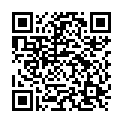|
|
|
| Module code: WIBASc-525-625-Ing14 |
|
|
1V+1U (2 hours per week) |
|
3 |
| Semester: 5 |
| Mandatory course: no |
Language of instruction:
German |
Assessment:
Project, class presentation, written exam
[updated 02.07.2019]
|
WIBAS-450/550-M2e (P420-0420) Industrial Engineering, Bachelor, ASPO 01.10.2007
, semester 5, optional course
WIBASc-525-625-Ing14 (P420-0420) Industrial Engineering, Bachelor, ASPO 01.10.2013
, semester 5, optional course
|
30 class hours (= 22.5 clock hours) over a 15-week period.
The total student study time is 90 hours (equivalent to 3 ECTS credits).
There are therefore 67.5 hours available for class preparation and follow-up work and exam preparation.
|
Recommended prerequisites (modules):
WIBASc235 Engineering Mechanics I
WIBASc245 Manufacturing Engineering
WIBASc335 Engineering Mechanics II
WIBASc345 Design Technology / CAD
[updated 11.02.2020]
|
Recommended as prerequisite for:
|
Module coordinator:
Prof. Dr.-Ing. Christian Köhler |
Lecturer:
Prof. Dr.-Ing. Christian Köhler
[updated 11.02.2020]
|
Learning outcomes:
After successfully completing this module, students will know the basic structure of machine tools for different manufacturing technologies.
Students will know the function of important elements of machine tools (e.g. frames, guides, drives, gears, controls).
They will be familiar with additional machine tool equipment required for operation.
In addition, students will be able to determine suitable machine tool concepts.
[updated 02.07.2019]
|
Module content:
1. Introduction
2. Design of selected types of machine tools
3. Function and design of important elements of machine tools
4. Additional equipment on machine tools
[updated 02.07.2019]
|
Teaching methods/Media:
Lecture with discussions, presentations and exercises
The following types of media will be used during the seminar: projector, laptop, sample components, blackboard, daylight recorder, etc.
[updated 02.07.2019]
|
Recommended or required reading:
Conrad, K.J.: Taschenbuch der Werkzeugmaschinen, Fachbuchverlag im Carl Hanser Verlag
Weck, M.; Brecher, C.: Werkzeugmaschinen (Band 1-5), VDI-Buch, Springer Verlag (schwerpunktmäßig Band 1 und 2)
Grote, K.H.; Feldhusen, J.: Dubbel _ Taschenbuch für den Maschinenbau, Springer Verlag
Europa Lehrmittel: Fachkunde Metall (für Übersicht und Einführung)
[updated 02.07.2019]
|

